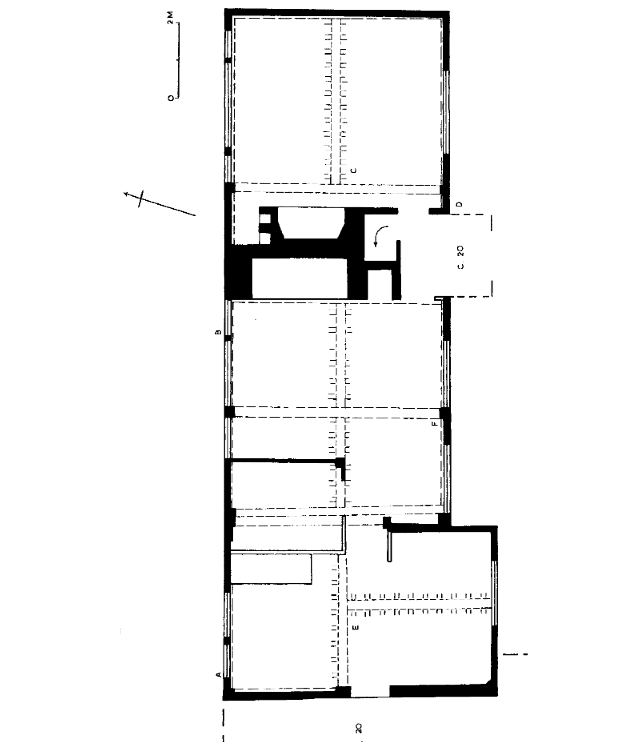anchor
The Birth and Death of Privacy: 3000 Years of History Told Through 46 Images

“Privacy may actually be an anomaly” ~ Vinton Cerf, Co-creator of the military’s early Internet prototype and Google executive.
- Privacy, as we understand it, is only about 150 years old.
- Humans do have an instinctual desire for privacy. However, for 3,000 years, cultures have nearly always prioritized convenience and wealth over privacy.
- Section II will show how cutting edge health technology will force people to choose between an early, costly death and a world without any semblance of privacy. Given historical trends, the most likely outcome is that we will forgo privacy and return to our traditional, transparent existence.
Internal Walls (c. 1500 AD): Most homes didn't have walls separating the rooms until the development of the brick chimney, which needed support beams.

Source: Housing Culture: Traditional Architecture In An English Landscape (p. 78).
“A profound change in the very blueprint of the living space” ~ historian Sarti Raffaella, on the introduction of the chimney.
Read on this fascinating piece.
Related: The next battleground for personal privacy: gyms?


4 Comments
Wow!!!
Okay, let's unpack this a little bit though. The idea of shared space is certainly eye opening. But the cultural differences between their shared space and ours is huge. From my understanding of Arendt's The Human Condition, the servants and the family members who lived in the house were not considered on the same plane of humanity as the leader of the house. In that sense, the servants/slaves and the animals could see all they had to, it would be the same as our computer monitors in the same room.
Space and privacy, as shown in the article, are historically tied to luxury/elite and the escape from basic needs. So perhaps, the brief period shown with privacy having mass appeal might be one of the few moments where there was enough excess of space and money to allow a larger part of the population to be able to afford the things previous reserved only for the wealthy.
And privacy having been secured in some sense, people feel comfortable CHOOSING when and where to let their data be shared, given the perks in return. In contrast, the public still has a problem with the mass data collection done by the government. We do not know what information they collect, or from whom. So yes, people give away freely if they have a vague notion of exchange.
We should also be a little bit questioning of the author though. As a programmer, he is a controller, designer and distributor of data. He knows how to hide his data and how to show it. He also makes, or will make, enough money to be able to afford to opt out of cheaper services, escaping any monetary need and thereby becoming one of the elites described by Arendt.
I wonder if the leak of privacy back into the hands of large, powerful corporations is just an indicator of the shifting balance of power back more resolutely into the hands of the very, very few.
I was also reminded of this design by Coop Himmelb(l)au
http://www.dezeen.com/2014/06/16/coop-himmelblau-jammer-coat/
Only recently has there been our current understanding of everyone as equal people with an equal voice. Given our progress to a point of mutual respect and acknowledgement of humanity, the slip back into a less private world could mean more than a simple return to a familiar behavior. It seems to be done out of a sense of powerlessness--I cannot do anything else but access this website with cookies, so I guess I must do it.
Privacy is not 150 years old. Maybe privacy of family members is 150 years old if you examine many cultures, but privacy of a group and the act of separating themselves from a larger group is not new at all. Your pictures clearly show tons of partition walls.
Block this user
Are you sure you want to block this user and hide all related comments throughout the site?
Archinect
This is your first comment on Archinect. Your comment will be visible once approved.